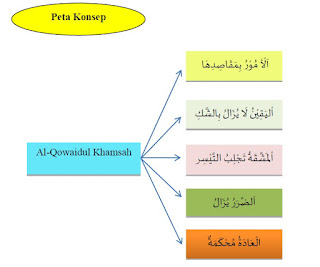Parent's Role in Education
Parents
are the first educator and the main educator in teaching principal things for
children mental development. Human was born and growth until become adult in
family that is why parents are stated as the first educator. While as the main
educator, parents are help the children to develop their personalities, habits,
and attitudes. By their potential children are thought and growth in positive
way belongs to their ability. Allah Almighty says in An-Nahl: 78 states that
everyone was born without knowing anything. So this is the duty for their
relatives to teach them.
The
best solution in education is the presence of the adult. It is better if one or
both of the parents are active in their children’s education. Parents must
really participate in the children’s education. Moreover, parents frequently
communicate with the educational institute to monitor their children’s academic
and personal development.
Education
of family is fundamental to children’s education because education may
determine much of the children’s future. Form
and content and the way to educate given by parents will regard growth and
character development kindness and their children personality.
As the realization from the responsibility and motivation of the parents
to the children education in school, parents also hold responsibility in give
the guidance in children learning activity, appropriate with their ability. The
guidance of the parents must not teach children in certain lesson as soon as
teacher does in school, but parents can give motivation in another way that can
help children learning activity included inside.
There
are many ways for parents to stay involved in children’s education without
appearing to be trying to control their lives. such as helping in doing
homework, registering in a course, represent private teacher in home, providing
facility in learning, giving attention, and support by making enjoyable
learning situation at home and helping in solving problem, or ask to study hard and give praise or present of achievement which have
been reached, because with the praise or present from parent it can improve
children’s enthusiasm in learning. It is appropriate in line with Allah Almighty
commands in Al Mu’min: 17.
Parents
who want their children get the goal achievement in the school must give the
attention to children in learning activity. Parents' active involvement with
their children's education at home and in school brings great rewards and has a
significant impact on their children's lives.
In
adolescence, children become more independent and usually do not want their
parents in school. In middle and high school, students have to deal with more
courses and more teachers in a more impersonal way, so parent involvement,
although less direct, is still critical. Parents can participate in events at
school, monitor homework, provide experiences and materials that supplement
course work, and help children with organizational strategies. Parents can
influence their children's academic progress by encouragement, reinforcement
and modeling. Children learn from their parents' own learning style and
activities such as discussions, newspapers and other reading materials,
television habits and other quests for information and knowledge.
To
become active in involvement to children education, parents’ must have the
educational background, because family status variables such as parents' level
of education have been regarded as predictors of children's academic
achievement. Increasingly, research has suggested that, rather than having a
direct association with children's academic achievement, parents' level of
education is part of a larger constellation of psychological and sociological
variables influencing children's school outcomes.
Higher
levels of education may equal access to resources, such as income, time,
energy, and community contacts, that allow for greater parental involvement in
children education. Thus, the influence of parents' level of education on
student outcomes might best is represented as a relationship mediated by interactions among status and process variables.
Literature
also suggests that the level of education influences parents' knowledge,
beliefs, values, and goals about childrearing, so that a variety of parental
behaviors is indirectly related to children's school performance. For example,
higher levels of education may enhance parents' facility at becoming involved
in their children's education, and enable parents to get and model social
skills and produce the problem solving strategies to children's school success.
Thus, students whose parents have higher levels of education may have a long
view for learning, more positive ability beliefs, a stronger work orientation,
and they may use more effective learning strategies than children of parents
with lower levels of education.

Komentar